
THE VOICE OF INTERNATIONAL LITHUANIA
|
VilNews has its own Google archive! Type a word in the above search box to find any article.
You can also follow us on Facebook. We have two different pages. Click to open and join.
|
Author Archive
- Posted by - (0) Comment

Healing the heart and
soul of Lithuania
By Ida Hardy, Texas, USA
Lithuania is my mother’s country. She escaped with her mother and sisters as a young child and at one point in her life she wanted to return. It seemed to me that she heard the whispers from the wind in the forests and they were calling her home. My mother taught us a little about the folk tales and the music. She taught us to meditate and a little bit about yoga and I wanted to learn more about her childhood home. But the Soviets were still reigning and it was impossible for us to go. Later, as we cried on the phone on that day in 1991 I asked her if she would like to return and she said, “You can never go back. Things are changed so much.”
Her message was about more than the structure of her home and the murder of her father. She was really talking about the broken spirits of all the people who were victims, those who were aggressors, and those who were both. There is no going back. No one can undo the evil that has taken place anywhere on the planet throughout time.
is.
Read more...
Gordon Ross So... The Soviets are gone.... Why are you still in Texas?
Aage Myhre Ida Hardy, I think
Gordon Ross (from Scotland but already half Lithuanian), has a good point
Ida Hardy I think it's a good question...not sure I have a good answer.
Virginia Shimkute warmer in Texas is a good reason !
Ida Hardy One year I should go in July or August when it is too warm here.
Felicia Dalia Prekeris Brown I also escaped from the Soviets arriving in Lithuania (for the second time) in 1944, and I also dreamt of forests and streams from my childhood. Luckily, I've gone back over and over since we regained independence: mostly because nowhere can I get the real CEPELINAI except in Lithuania! Something about the potatoes from that black soil!
Ida Hardy Felicia Dalia Prekeris Brown have you written your story? I want to know what your life was like and what happened to you - and if you have a nice recipe for cepelinai?
Boris Bakunas @Gordon Ross. I have a good answer. Because in the free world, people have the right to live where they want. Let us remember that our wishes are not commands that others must obey.
Felicia Dalia Prekeris Brown Ida - I actually have written down the story of our family's existence under Soviets and Nazis (1939-1945), our harrowing escape from Lithuania with the Soviets at our heels, life in the DP camps... It's at the publisher's now and should be coming out this summer: called "God, Give Us Wings." I see that many of us in sunset years are setting down the history we lived before it all fades into oblivion.
Boris Bakunas @Felicia Dalia Prekeris Brown. Yes, we are. It's so important for our children and children to know what our families endured. It can be a source of strength in times of hardship. Whenever something unfortunate happens to me, I automatically say, "This is nothing compared to WWII."
Ida Hardy I will read it. I think it was too difficult to talk about and my mother didn't give too many details. She was maybe 9 when they fled. So much suffering and for so long. I don't blame her for avoiding the subject.
Boris Bakunas My family rarely spoke about the events of World War II as well. It took a lot of research to find out even the little I have learned. Some memories are so painful that people want to bury them. I believe, however, that we are better off if we face time. In time, they cease to have a hold on us. How else can we become free?
Bernard Terway We can go back a lot further than WW2 to find Lithuanians who left but were still afraid to talk about where they came from. To this day, I have no idea where my grandparents came from n Lithuania. They wold not talk about it for fear of being sent back and forced into the Russian army, I suspect.
Ida Hardy Yes, facing your fears is important but I think so many people need help in order to do it in a productive way so that they move through the difficulty instead if getting caught up in the resentment, anger, fear and stopping there. Long-held and tightly-held anger is a burden.
Felicia Dalia Prekeris Brown Ah those difficult memories! I was lucky: I TAPED my parents reminiscing about the years from 39 to 45, and they also wrote down some things to give me a good timeline. I was 7 in 1945 and remembered events but not the sequence. I also had many documents and letters: thank God my father had the soul of an archivist! Thus I had a stack of materials to guide me.
Ida Hardy And thank God your father lived to tell! God bless you for doing the work.
- Bookmark :
- Digg
- del.icio.us
- Stumbleupon
- Redit it
- Posted by - (0) Comment

Belarus seeks bigger say in Klaipeda Port, writes news2biz LITHUANIA.
Lithuania's southern neighbour Belarus plans not only to increase the already significant volume of cargo exported through Klaipeda but have a bigger say in the port's business, writes news2biz LITHUANIA.
At the recent Lithuania-Belarus business forum in Lithuania's only port city, the Belarus side announced that the state-owned Belaruskalij fertilizer producer is acquiring for USD 30m a 30% stake in Biriu kroviniu terminalas, a fertilizer reloading terminal, controlled by a Klaipeda transport investor.
The Lithuanian company has not confirmed the deal but commented that talks are indeed underway.
Belaruskalij is a global-scale player in potash mineral fertilizers and the biggest producer in the former Soviet Union. Klaipeda has long competed with Latvia's Ventspils for the status of the fertilizer giant's preferred export port. Belarus' government plans selling a 10-15% stake in Belaruskalij to an investor. Reportedly, potential suitors from China, India, Europe and the Arab world are interested in the deal.
The Belarus side is also interested in acquiring Bega, another bulk and liquid fertilizer reloading specialist in Klaipeda with a 6m tonne annual capacity that is planned to rise to 10m tonnes by 2020. At the end of last year the company constructed an LTL 80m agriculture product terminal.
- Bookmark :
- Digg
- del.icio.us
- Stumbleupon
- Redit it
- Posted by - (0) Comment
Section Editor
AAGE MYHRE
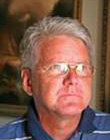
Norwegian. VilNews Editor-in-Chief. Has lived in Lithuania for almost 20 years. He holds a Norwegian M.Sc. of Civil Engineering (dept. of Architecture), and has 35 years of experience as a journalist and editor.
POSTGRADUATE: Architectural Psychology, Université Louis Pasteur, Strasbourg, France (1982). MISCELLANEOUS COURSES: Management for Presidents, Psychology, Sociology, Marketing and Politics.
Aage Myhre has been actively involved in Lithuanian affairs since 1990 within politics, business, new investments, media, architecture and general development of the country. He is one out a handful Norwegians, among them also a former Norwegian Prime Minister and Foreign Minister, having received the Lithuanian Prime Minister’s special award for support to Lithuania in 1990-91 and for later outstanding contribution to the bilateral cooperation between the two countries. If you want to contact him, please do so at aage.myhre@VilNews.com
His web page is www.VilNews.com
VLADAS LASAS
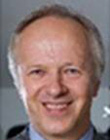
CEO/Founder of Skubios siuntos UAB Kaunas & UPS/Lithuania. Vladas Lašas studied, lectured and did research on Computer Vision at Kaunas University of Technology. He holds doctorate in Computer Science. He presented results of his research at conferences in Japan, USA, Germany, Russia and other countries. He is co-founder and/or co-owner of several companies in Lithuania, including: UPS Authorised Service Contractor in LT - Skubios siuntos UAB, Elinta UAB - Industrial and Power Plant Automation, Elinvision UAB - Computer Vision R&D, and Globaltus UAB - Global e-Commerce. Vladas is a TED Conference member and one of the 32 TED Patron’s worldwide. He is an investor in sustainable & renewable energy projects in Europe through GRE Holding. His area of interest includes innovation in technology, education and society. He actively take part in projects run by AmCham, The British Council, Save The Children, Rotary Club, universities and other organisations. He likes jogging, trekking, bicycling and adventure. If you want to contact him, please do so at vladas@ups.lt
His web page is www.ups.lt
GIEDRIUS SABALIAUSKAS
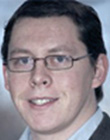
Attorney at Law. International development consultant and investment adviser with over 10 years of professional experience. Specializing in investment management, advice on investment climate improvement, PPP and infrastructure regulatory aspects. Over 5 years of ongoing focused experience in advising businesses, governments and municipal authorities on the regulatory frameworks for the establishment, management and operations of the Industrial/Special Zones and related PPP/management models. Recent development missions: Lithuania (2004-2007), Yemen (2008), Serbia (2008-2009); The Gambia (2009-2010). Over 5 years experience in managing and supervising investment projects in Lithuania (services, real estate, manufacturing) If you want to contact him, please do so at giedrius.sabaliauskas@siplaw.lt
His web page is www.siplaw.lt
DIANA KOVAL
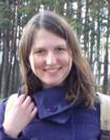
A student of history at the Vilnius University (3rd year). She had been volunteering for VEKS projects (Vilnius – European capital of culture 2009). Currently - a member of initiative group at the Foreign Lithuanian students’ club and a member of Sakura club. Also, she is an intern for VilNews e-magazine.
Web page: www.VilNews.com
E-mail: diana.koval@VilNews.com
- Bookmark :
- Digg
- del.icio.us
- Stumbleupon
- Redit it
- Posted by - (0) Comment
Section Editor
VIN KARNILA
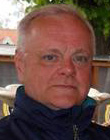
Vin Karnila is a Lithuanian American from the Boston area of Massachusetts. His professional background includes more than thirty years in the automotive industry including twenty years as an international management consultant and trainer. Vin has lived in Lithuania since 2004 and is the owner of BalticValue.com which offers items from the Baltic’s and Tarptautinis English which is an English language training and editing service. You can contact Vin at: vin.karnila@VilNews.com
His web pages are:
www.balticvalue.com
www.VilNews.com
TOMAS VENCLOVA
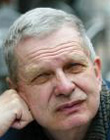
Born in Klaipeda, Lithuania, Mr. Venclova now resides in the United States. His education includes a Diploma in Philology from Vilnius University, Graduate Study at Tartu University and a Ph. D. from Yale University. Mr. Venclova’s professional experience includes positions as professor and lecturer in the fields of language and literature at Yale University, UCLA, Ohio University, University of California Berkeley, and Vilnius University. His fields of specialization and teaching are Russian, Polish and Lithuanian language and literature and Semiotics and literary criticism. His honors and awards include the International literary prize Vilenica, numerous Doctor honoris causa, Lithuanian National Prize, New Culture of New Europe Award and Baltic Star Award. Mr. Venclova has authored in various languages over 200 publications and 9 books in the scholarly field and 52 books of poetry and essays. http://en.wikipedia.org/wiki/Tomas_Venclova
- Bookmark :
- Digg
- del.icio.us
- Stumbleupon
- Redit it
- Posted by - (0) Comment
Section Editor
GENE EMMER
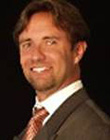
Dr. Gene Emmer is a physiologist and an MBA. After an international career in the pharmaceutical industry which gave him the opportunity to live and work in several different countries, Gene developed the European distribution network for an American manufacturer of wheelchairs. He then founded a company manufacturing innovative wheelchair accessories which he sells from his wheelchair www.NewDisability.com website. He also runs a wheelchair www.WheelchairPride.com blog. Gene lives in Lithuania with his wife and young son.
AUDRIUS SIMAITIS
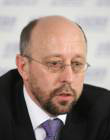
Mr. Simaitis graduated from the Medical Faculty of Vilnius University in 1990 and completed advanced training in Cardiology in 1994. In 1995 his family moved to Klaipeda and he became a member of a team that established modern Cardiology services in Western Lithuania. Currently he works as Consultant Cardiologist at Royal Cornwall Hospital, United Kingdom.
His blog link is http://simaitis.lt/
Email: nemanius99@gmail.com
- Bookmark :
- Digg
- del.icio.us
- Stumbleupon
- Redit it
- Posted by - (0) Comment
Healing the heart and
soul of Lithuania
By Ida Hardy, Texas, USA
Lithuania is my mother’s country. She escaped with her mother and sisters as a young child and at one point in her life she wanted to return. It seemed to me that she heard the whispers from the wind in the forests and they were calling her home. My mother taught us a little about the folk tales and the music. She taught us to meditate and a little bit about yoga and I wanted to learn more about her childhood home. But the Soviets were still reigning and it was impossible for us to go. Later, as we cried on the phone on that day in 1991 I asked her if she would like to return and she said, “You can never go back. Things are changed so much.”
Her message was about more than the structure of her home and the murder of her father. She was really talking about the broken spirits of all the people who were victims, those who were aggressors, and those who were both. There is no going back. No one can undo the evil that has taken place anywhere on the planet throughout time.
 I’m a yoga teacher and natural health practitioner. I learned much of what I know from my mother, and everything else I learned at University. University may have offered more details but I think it all simply confirmed everything she taught about keeping the body healthy. Probably what every mother teaches.
I’m a yoga teacher and natural health practitioner. I learned much of what I know from my mother, and everything else I learned at University. University may have offered more details but I think it all simply confirmed everything she taught about keeping the body healthy. Probably what every mother teaches.- Bookmark :
- Digg
- del.icio.us
- Stumbleupon
- Redit it
- Posted by - (5) Comment
Healing the heart and
soul of Lithuania

By Ida Hardy, Texas, USA
Lithuania is my mother’s country. She escaped with her mother and sisters as a young child and at one point in her life she wanted to return. It seemed to me that she heard the whispers from the wind in the forests and they were calling her home. My mother taught us a little about the folk tales and the music. She taught us to meditate and a little bit about yoga and I wanted to learn more about her childhood home. But the Soviets were still reigning and it was impossible for us to go. Later, as we cried on the phone on that day in 1991 I asked her if she would like to return and she said, “You can never go back. Things are changed so much.”
Her message was about more than the structure of her home and the murder of her father. She was really talking about the broken spirits of all the people who were victims, those who were aggressors, and those who were both. There is no going back. No one can undo the evil that has taken place anywhere on the planet throughout time.
 I’m a yoga teacher and natural health practitioner. I learned much of what I know from my mother, and everything else I learned at University. University may have offered more details but I think it all simply confirmed everything she taught about keeping the body healthy. Probably what every mother teaches.
I’m a yoga teacher and natural health practitioner. I learned much of what I know from my mother, and everything else I learned at University. University may have offered more details but I think it all simply confirmed everything she taught about keeping the body healthy. Probably what every mother teaches.We must heal from hurts of the past. In order to experience a truly satisfying fullness in all areas of life, to fully actualize, a person must have a sense of security and a sense of belonging. A connection to the tribe or community and a sense of your individual power can elevate your ability to be really happy. When you have this feeling of connection to your true Self and to others, you can generate compassion and even love and appreciation toward people around you and draw people to you. If you become stuck in the first step and have not established security or taken care of your own basic needs and feel that there are not enough resources or that your own pain or greatness has not been acknowledged you become a little angry and no one is attracted to that.
Countries are the same way and, in the collective sense, Lithuania has a real opportunity to heal. From what I can see and feel from way over here, Lithuania is on the brink of something really great. I can feel in a very palpable way a sort of bubbling, an effervescing of energy and drive.
So, as this energy becomes stronger and propels the leaders of the country forward both politically and in business, I would ask everyone to take a really close look at the impact the early days has had on the consciousness of current residents. In my quest for information regarding my mother’s family and her life in Lithuania I have read websites and stories from people who have overcome trauma and gone on to experience love and forgiveness and ultimately – happiness. But not everyone is able to overcome so readily.
Children who experience early trauma are known to experience difficulty in life. It is an accepted fact and many studies have been conducted to try and understand this. Stanford University recently conducted a study that looked directly at the physiological changes in the brain of children who experienced had experienced trauma. MRI scans showed the hippocampus of these children was altered compared to children not exposed. So, we know that all of our brains and our psychology is different due to the trauma.
How do we heal from the trauma? First, acknowledge that it happened. Acknowledge your own or your family’s part in it. Without making a judgment about the character of any person involved, become aware of and acknowledge, at least in your own mind, that everyone suffered during those days and that not enough was done by anyone in order to stop it. This acknowledgment is easier said than done. We must acknowledge the capacity that each person has inside to do either evil or good. It’s by this acknowledgment that we can forgive the past and guard against the future.
We can feel anger about the events of the past, and known perpetrators should be held accountable from the legal standpoint, but sometimes, we know, things are not made ‘right’ through legal means. My mother will never have her family farm and of course no government has the means to pay reparations to each individual and their family forever. So, let the anger subside and accept that very bad things happened and they hurt you personally. But also acknowledge that it is not happening to you right now.
For a child who has experienced trauma you would make sure to provide them with a safe place where all their physiological needs are met: food, shelter, security. Once these are established you can begin to create a place for them to be included in the community. It seems like Lithuania is already there – has a place in the community. But it also seems that, by what I’ve read on some of the not so pleasant comments on FB and websites talking about LT history, there are many people who are still stuck in that first or second step. They don’t feel secure.
Insecure people are dangerous because they lash out at others and blame other people for their own circumstances. In yoga we might say that they have a block in their energy channels and can’t get past that first or second chakra. Mazlow would say they’re stuck and unable to develop through the hierarchy of needs.
Everyone wants to be happy. Healing a country takes time and patience. But healing also takes a thorough commitment and perseverance. We must understand that everyone needs to be able to connect to the community in a meaningful way and symbols and language of blaming and a tendency toward promoting a certain ethnic superiority only stunts the ability to establish a firm foundation of peaceful and easeful living. These too, are indicators of a certain level of insecurity.
We can fall into bad habits of thinking patterns which prevent us from moving forward. I urge you to examine your own thoughts and change them. Notice when you’re having a negative thought and change it. Work toward changing attitudes of others by examining your own attitude.
From the words of my teacher:
 “We are not going to change the whole world, but we can change ourselves and feel free as birds. We can be serene even in the midst of calamities and, by our serenity, make others more tranquil. Serenity is contagious. If we smile at someone, he or she will smile back. And a smile costs nothing. We should plague everyone with joy. If we are to die in a minute, why not die happily, laughing?”
“We are not going to change the whole world, but we can change ourselves and feel free as birds. We can be serene even in the midst of calamities and, by our serenity, make others more tranquil. Serenity is contagious. If we smile at someone, he or she will smile back. And a smile costs nothing. We should plague everyone with joy. If we are to die in a minute, why not die happily, laughing?” - Sri Swami Satchidananda
- Bookmark :
- Digg
- del.icio.us
- Stumbleupon
- Redit it
- Posted by - (0) Comment
International Lithuania
meets in Old Town!
Last Friday the summer season opened here in Vilnius Old Town, for many pleasant encounters between Lithuanians and Lithuanian-related people from all over the world! Amatininku Užeiga (The Craftsmen's Tavern) on the corner of Rotušės aikštė (Town Hall Square) and Stiklių street was the place where we met – representatives of the World Lithuanian Community, Vilnius International Club and VilNews – this warm, velvet soft early summer evening. Amazing night! Wonderful people!
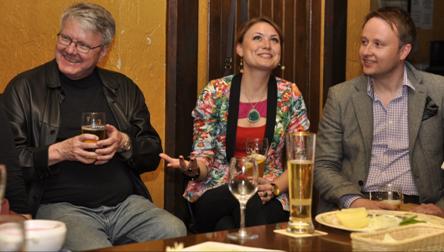
- Bookmark :
- Digg
- del.icio.us
- Stumbleupon
- Redit it
- Posted by - (1) Comment
International Lithuania
meets in Old Town!

Last Friday the summer season opened here in Vilnius Old Town, for many pleasant encounters between Lithuanians and Lithuanian-related people from all over the world! Amatininku Užeiga (The Craftsmen's Tavern) on the corner of Rotušės aikštė (Town Hall Square) and Stiklių street was the place where we met – representatives of the World Lithuanian Community, Vilnius International Club and VilNews – this warm, velvet soft early summer evening. Amazing night! Wonderful people!














- Bookmark :
- Digg
- del.icio.us
- Stumbleupon
- Redit it
- Posted by - (0) Comment
Lithuanian genius artist
Marija T. Rožanskaitė
I attended an amazing gallery tour by Laima Kreivytė, the curator of the exhibition of Marija Teresė Rožanskaitė’s work. I had seen some works by Rožanskaitė at the National Gallery of Art earlier, and I thought that she was among the most interesting Lithuanian artists of all times, but the current exhibition gives a full picture of her genius. Rožanskaitė (1933-2007) started her career under Soviet censorship, when artistic expression was carefully monitored and abstract art was treated unfavorably. However, her ‘progressive’ topics (modern medicine, space exploration and industrial cities) allowed her to get through the censorship. However, being a child of political prisoners and a progressive artist, she was largely ignored in the USSR. When Lithuania became independent, the artist continued producing innovative art, creating spatial assemblages and installations, addressing ecological and political topics, adored by the young generation. And yet I never studied about her work at art history lessons, and I heard nothing about her death in 2007 from the mainstream press. It’s a typical way to treat women artists.
- Bookmark :
- Digg
- del.icio.us
- Stumbleupon
- Redit it
- Posted by - (0) Comment
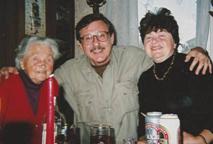
Boris went to Siauliai to see his
grandmother’s sister before she died.
Can good come
from selfishness?
By Boris Vytautas Bakunas
I want to tell you a true story. During a trip to Lithuania a few years ago, I drove to the city of Siauliai to see my grandmother’s sister before she died. At 97 she was the oldest surviving member of my family.
My reason for visiting her was not only selfish, but it was based on an illusion…
Read more...
Rimgaudas Vidziunas great story...lesson learned 'do for others as you would have them do to you'. Now I learned that somewhere. Oh Yes, the 'Ten Commandments'
Irena Kenneley
Synchronicity/meaningful coincidence--how awesome is the fact that you were able to take a step back, connect the dots so that they include your inner and outer world, surroundings, emotional state, and motivations to come full circle and realize the deep implications of your visit and its effects on yourself and those around you! If it's one thing I've learned over the years is that taking care of oneself is not selfish! I admire your writing style! Great story....
Eugene Rangayah Heartfelt Boris! I don't even have the words! Family and connections are so important to maintain!
Sandra Abramovich A wonderful story!
Vijole Arbas death is something like taking a long trip
- Bookmark :
- Digg
- del.icio.us
- Stumbleupon
- Redit it
- Posted by - (0) Comment
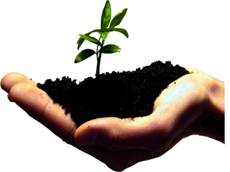
Over the past three years the share of EU citizens who want to be self-employed has fallen from 45% to 37%
Brussels, Belgium — Over the past three years the share of European Union (EU) citizens who want to be self-employed has fallen from 45% to 37%, reports European Commission (EC). This year EC highlighted the need for more entrepreneurs in order to return the EU to economic growth and higher levels of employment.
However, historical, cultural and economic background of diverse European countries has significant effects on attitudes towards entrepreneurs in European countries. Lack of in-depth knowledge might determine future revival of entrepreneurship in Europe, reveals the study by Lithuanian Free Market Institute (LFMI) today presented in Brussels.
“It is a positive trend in Europe to turn to entrepreneurs and acknowledge their role in creating economic growth. Yet, without knowing the mistakes of the past, there is no future. This is especially important then considering New Member States, such as Lithuania or Bulgaria, which still carry a burden of post-communist past. Therefore, only full understanding of entrepreneurial situation per country can guarantee that necessary measures will be taken and they actually will give wanted results”, says Zilvinas Silenas, President of LFMI.
In line with the acknowledged need to revive entrepreneurial spirit of Europe, LFMI conducted an international in-depth study in two New EU Member States, Lithuania and Bulgaria, and for comparative reasons in two non-EU countries – Georgia and Kyrgyzstan. The aim of the current study was to determine attitudes towards entrepreneurs in countries sharing the same post-communist past and underlying historical, cultural and economic reasons of such attitudes.
How to get rid of the “exploiter” image of the entrepreneurs?
Read more...
- Bookmark :
- Digg
- del.icio.us
- Stumbleupon
- Redit it
Over the past three years the share of EU citizens who want to be self-employed has fallen from 45% to 37%
- Posted by - (2) Comment
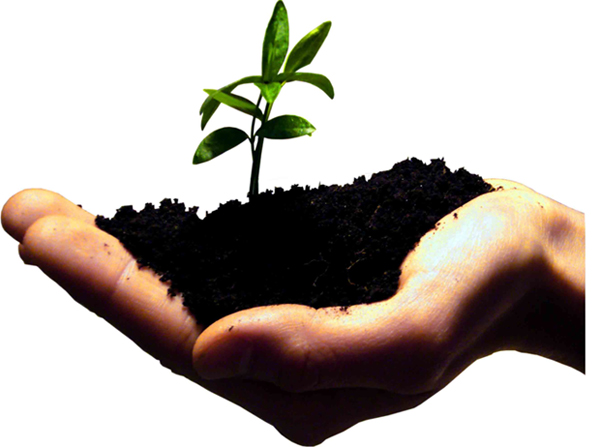
Brussels, Belgium — Over the past three years the share of European Union (EU) citizens who want to be self-employed has fallen from 45% to 37%, reports European Commission (EC). This year EC highlighted the need for more entrepreneurs in order to return the EU to economic growth and higher levels of employment.
However, historical, cultural and economic background of diverse European countries has significant effects on attitudes towards entrepreneurs in European countries. Lack of in-depth knowledge might determine future revival of entrepreneurship in Europe, reveals the study by Lithuanian Free Market Institute (LFMI) today presented in Brussels.
“It is a positive trend in Europe to turn to entrepreneurs and acknowledge their role in creating economic growth. Yet, without knowing the mistakes of the past, there is no future. This is especially important then considering New Member States, such as Lithuania or Bulgaria, which still carry a burden of post-communist past. Therefore, only full understanding of entrepreneurial situation per country can guarantee that necessary measures will be taken and they actually will give wanted results”, says Zilvinas Silenas, President of LFMI.
In line with the acknowledged need to revive entrepreneurial spirit of Europe, LFMI conducted an international in-depth study in two New EU Member States, Lithuania and Bulgaria, and for comparative reasons in two non-EU countries – Georgia and Kyrgyzstan. The aim of the current study was to determine attitudes towards entrepreneurs in countries sharing the same post-communist past and underlying historical, cultural and economic reasons of such attitudes.
How to get rid of the “exploiter” image of the entrepreneurs?
According to study results, New Member States tend not to trust entrepreneurs. Only a third of Lithuanians (31%) trust entrepreneurs, whereas in Bulgaria only one fifth (19%) of citizens do so. The research has also shown, that the large part of population, while evaluating, if they trust or not entrepreneurs, stay neutral. Neutral position was held by 33% of citizens in Bulgaria and 38% citizens of Lithuania. In comparison, in Georgia and Kyrgyzstan trust rate is higher – almost a half of the population said that they trust entrepreneurs.
Moreover, 67% of Lithuanians and 69% Bulgarians agree or tend to agree with the statement that “Entrepreneurs get rich by exploiting other people’s work”.
“The Soviet period was characterized by full nationalization and central planning of economic activities, by demonization of entrepreneurs. In all the countries the communist period did the most significant damage by stopping the development of entrepreneurship and creating a strong association between business and exploitation. Entrepreneurship is a natural process, which organically develops from the natural needs of a society, and the natural ability of entrepreneurs to fulfill these needs. Any top-down intervention in this process may be harmful and may hamper progress. Especially, if this intervention creates a negative image of entrepreneurship”, says Zilvinas Silenas.
According to anthropologist Prof. P. Subacius, study results show that in the mindset of post-communist rule people, there is not only a lack of trust, but a lack of favorable depiction and understanding of enterprising as such.
Entrepreneurship needs creativity and innovation, doesn’t it?
Majority (74%) of Lithuanians think that economic growth is created by entrepreneurs and businesses. In Bulgaria more than a half (55%) of population sees entrepreneurial efforts as the main source of economic growth. In Bulgaria as well as in Lithuania around a quarter of respondents thought that the government is the source of economic growth.
In Georgia and Kyrgyzstan about a half of respondents think that entrepreneurs and businesses create wealth for the society. In these countries there were slightly more people who think that the government is the source of economic growth in Kyrgyzstan (30%) and Georgia (34%) of respondents chose this answer.
“The differences between EU and non-EU countries are logical. In Kyrgyzstan the state sector is still dominant and, therefore, people see more important role for the state. During last decade there were significant economic and political reforms in Georgia. These reforms contributed to the economic growth and the people took this into account, when answering the survey. The optimistic sign from EU perspective is that the majority of the populations in two EU countries realize that businessmen are the creators of wealth in a society and that entrepreneurship requires a lot of hard work, risk taking and these qualities are admired”, claims Z. Silenas.
According to the study, the most common associations for Lithuanians, which arise when talking about entrepreneurs are social status (39% of Lithuanians chose the answer), hard work (39%), luxury (32%), risk (31%). These were followed by creativity (23%), ingenuity and innovation (21%), corruption (20%), bankruptcy (15%), crime (9%), charity (10%).
In Bulgaria many people associate entrepreneurs with corruption (23.4%). Ingenuity and innovation is only the seventh most frequently mentioned association out of ten – it was mentioned by only 14.3% against 23.4% for "corruption", 34.3% for "luxury" and 40.9% for "hard work".
According to scholars, recent data shows that for post-communist country residents it is easier to associate entrepreneurs with hard work as these qualities are more prominent in their culture and history. However, scholars admit that creativity, which is a fundamental quality in entrepreneurship, should receive more recognition from society.
“Results of the research warn that citizens of New EU States do not fully understand the function of the entrepreneur. When we think about the measures to encourage entrepreneurship in Europe, we must take this into account. Public understanding should come first. Only then support, advice or any other measures can give good results”, says Zilvinas Silenas.
However, lack of creativity in New EU Member States might be caused not only by the communist rule. In contrast, in Georgia people think that entrepreneurship and creativity goes hand in hand (64% of Georgians chose this answer).
No freedom, no businesses
When asked, what measures, residents believe, would mostly help to encourage entrepreneurship in Lithuania, the majority (62%) said lower taxes and less regulation by the government would help. Also a large share of population (45%) thinks that a larger government aid would help. A better public opinion (14%), better conditions for getting a loan (12%) and better education (12%) were less common among answers.
A large share of population in Bulgaria (39%) also thinks that lower taxes and less government regulation would help entrepreneurs. 24% of Bulgarians though that business needs more help from the state.
Both of these countries have the highest shadow economies from the EU-27 countries, which can be linked to high taxation and regulatory burden.
“The study shows that citizens clearly depict the problem of current economic climate, followed by huge unemployment. In times of high unemployment, people are willing to sacrifice the ability to have a higher wage and all the benefits that official employment brings in order to have any kind of job and to gain some marketable skills. Sometimes during rough periods the laws designed to give people security and a better future, ruin their chances of employment, and better prospects in life. Therefore, regulatory burden, taxation are the fields to be revised if we want to encourage entrepreneurship in Eastern European countries”, says Z. Silenas.
The research on the profile of an entrepreneur in the post-communist countries, which seeks to evaluate the image and with the help from historians, sociologists, experts of religious studies, anthropologists find the reasons for such an image, is a part of an international project. The project was made possible through the support of a grant from the John Templeton Foundation. The project is implemented by LFMI with partners – Institute for Market Economics (Bulgaria), Central Asian Free Market Institute (Kyrgyzstan) and New School of Economics School (Georgia).
The Lithuanian Free Market Institute (LFMI) is a private non-profit non-partisan organization established in 1990 to promote the ideas of individual freedom and responsibility, free market, and limited government. Our goal is to help advance general interests of the people of Lithuania who can best be realized in a free market as every individual pursues his or her objectives – without any privileges, protection or restrictions – by serving the society and not relying on the government apparatus.
The LFMI‘s team conducts research on key economic and economic policy issues, develops conceptual reform packages, drafts and evaluates legislative proposals and aids government institutions by advising how to better implement the principles of free market in Lithuania. LFMI also conducts sociological surveys, issues economic literature and organizes conferences, workshops, and lectures. Educational activities are an integral component of LFMI‘s work aimed at making free market ideas a part of the Lithuanian society‘s life.
Visit www.freema.org
MEDIA CONTACT:
Vidmante Sirgedaite, Communication Officer
Lithuanian Free Market Institute
3A Šeimyniškių St., LT-09312 Vilnius, Lithuania
Tel. 00370-5-250-0281,
Mobile: 00370-653-70777
E-mail: Vidmante@lrinka.lt
- Bookmark :
- Digg
- del.icio.us
- Stumbleupon
- Redit it
- Posted by - (1) Comment
American company opens agricultural plant in Vilnius district
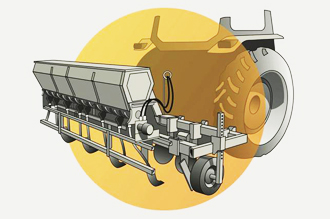
Kinze Manufacturing Inc., the second largest planting and seeding equipment manufacturer in the United States, will open a production facility in Vilnius District along the highway to Druskininkai. The facility will manufacture the company’s agricultural machinery product line, planters/seeders, to support its growing market in neighbouring countries including Russia, Ukraine, Czech Republic, Bulgaria and Hungary. It will open in autumn 2013 and start with 10 employees. In a few years the manufacturer will eventually employ 250 welders, mechanics, CNC operators and other specialists in its Lithuanian operations.
“This is our first plant abroad geared to increasing sales in Russia, Ukraine and the whole of the European Union,” commented Susanne Kinzenbaw Veatch, Vice President and Chief Marketing Officer of Kinze Manufacturing, Inc. “We were looking to expand in Eastern Europe and were considering Slovakia, Poland or Lithuania. We chose Lithuania because the local workforce is undoubtedly productive and cost-effective. Also we were very impressed by the country’s long-standing manufacturing traditions and the degree to which public institutions were attentive to our business needs.”
Kinze Manufacturing Inc. will develop the production plant in three stages. The initial assembly line will open this year and use both imported and locally-sourced components. In 2015, the manufacturer will open a welding and color-coating unit that will be partially reliant on components manufactured in-house; while by 2017 the facility will become fully-fledged, ranging in its functions from steel-processing to end-product assembly lines.
As a part of its shared value investment policy, the agricultural equipment manufacturer will also support local educational institutions and foster the skills of the next generation. The firm will work with universities as well as other professional schools and centers for engineering and production training. It will offer students internships in the manufacturing facility as well as hands-on learning opportunities in advanced manufacturing technology and production processes.
“Expanding manufacturing base is one of Lithuania’s key economic policy priorities,” said Prime Minister Algirdas Butkevičius. “Kinze’s investment is a validation that our competitive advantage is reinvented national legacy: advanced mechanical engineering skills, proximity to CIS markets, quality infrastructure.. This will be a major step in furthering our goal of developing a metal and machinery cluster. This is critical since manufacturing contributes most to export figures and provides majority of private sector research and development investments..”
According to Milda Darguzaite, Managing Director at Invest Lithuania, Kinze Manufacturing Inc. project is going to have a significant positive impact on Lithuania‘s national economy. “Kinze is globally distinguished for its high professional quality standards and business integrity. From the manufacturing perspective, the company’s long lasting traditions in innovation will greatly contribute to Lithuania‘s engineering skillset, and will take us further in terms of new product development, process optimization and quality control”. This is another great indication of Lithuania‘s achievements in winning over investors with sophisticated manufacturing needs.
About Kinze:
Founded more than 46 years ago on the premise of innovation, Kinze Manufacturing, Inc., markets its planters and grain carts globally and is known for a number of industry “firsts.” Kinze operates with core values of integrity, customer focus, excellence, innovation and mutual respect. Kinze Manufacturing is the recognized technology leader and innovator of planters for row-crop production and grain auger carts. Kinze employees spend their nights and weekends farming, putting them in a unique position to be both manufacturers and customers of the planters and grain carts they build. For more information, visit the Kinze Manufacturing website at www.kinze.com.
©Copyright 2013 by Kinze Manufacturing, Inc. All rights reserved. Kinze® and the Kinze™ logo are trademarks owned by Kinze Manufacturing, Inc. Kinze Manufacturing, Inc. reserves the right to make changes in engineering, design and specifications, or add improvements at any time without notice or obligation.
About Invest Lithuania:
Invest Lithuania is a Lithuanian government agency that provides free advice and introductions to on the ground experts for global companies interested in doing business in Lithuania.
The agency serves as a point of contact for foreign companies, and guides international businesses through every step of the process of setting up operations in Lithuania.
Invest Lithuania also provides information on Lithuania's highly-skilled yet cost-competitive labour force, tax incentives, and financing options.
The agency has worked with numerous well-known global companies that have taken advantage of Lithuania's many incentives to expand their businesses by placing some aspects of their operations in Lithuania.
For more information:
Dalius Morkvėnas | Head of Marketing and Communication Department at Invest Lithuania
Tel.: (85) 212 07 76, (8 630) 09 188 | Email:. dalius@investlithuania.com
Brooke Baxley | Karwoski & Courage Public Relations
Tel.: +1 (612) 342 9817 | b.baxley@creativepr.com
- Bookmark :
- Digg
- del.icio.us
- Stumbleupon
- Redit it
- Posted by - (0) Comment
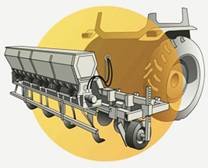
American company opens agricultural plant in Vilnius district
Kinze Manufacturing Inc., the second largest planting and seeding equipment manufacturer in the United States, will open a production facility in Vilnius District along the highway to Druskininkai. The facility will manufacture the company’s agricultural machinery product line, planters/seeders, to support its growing market in neighbouring countries including Russia, Ukraine, Czech Republic, Bulgaria and Hungary. It will open in autumn 2013 and start with 10 employees. In a few years the manufacturer will eventually employ 250 welders, mechanics, CNC operators and other specialists in its Lithuanian operations.
“This is our first plant abroad geared to increasing sales in Russia, Ukraine and the whole of the European Union,” commented Susanne Kinzenbaw Veatch, Vice President and Chief Marketing Officer of Kinze Manufacturing, Inc. “We were looking to expand in Eastern Europe and were considering Slovakia, Poland or Lithuania. We chose Lithuania because the local workforce is undoubtedly productive and cost-effective. Also we were very impressed by the country’s long-standing manufacturing traditions and the degree to which public institutions were attentive to our business needs.”
Read more...
- Bookmark :
- Digg
- del.icio.us
- Stumbleupon
- Redit it
- Posted by - (0) Comment
Can good come
from selfishness?

During a trip to Lithuania a few years ago, Boris went to the North Lithuanian city of Siauliai to see his grandmother’s sister before she died. At 97 she was the oldest surviving member of his family.
By Boris Vytautas Bakunas
I want to tell you a true story. During a trip to Lithuania a few years ago, I drove to the city of Siauliai to see my grandmother’s sister before she died. At 97 she was the oldest surviving member of my family.
My reason for visiting her was not only selfish, but it was based on an illusion. By meeting her, I believed that I could reconnect in some mysterious way with my grandmother whom I had loved very much. My motive was selfish because I visited the old woman so I could feel good. I did it for me, not for her.
I didn’t really expect any reaction greater than customary courtesy and perhaps even mild interest. Was I surprised!
When I entered the small cottage where she lived with her daughter and her son-in-law, I saw a table decked with delicacies, juice, brandy, and beer. A bright red candle had been lit in my honor. The room was so small that we had to huddle closely together around the table. My great aunt and my cousin sat beside me.
- Bookmark :
- Digg
- del.icio.us
- Stumbleupon
- Redit it
VilNews e-magazine is published in Vilnius, Lithuania. Editor-in-Chief: Mr. Aage Myhre. Inquires to the editors: editor@VilNews.com.
Code of Ethics: See Section 2 – about VilNews. VilNews is not responsible for content on external links/web pages.
HOW TO ADVERTISE IN VILNEWS.
All content is copyrighted © 2011. UAB ‘VilNews’.

 Click on the buttons to open and read each of VilNews' 18 sub-sections
Click on the buttons to open and read each of VilNews' 18 sub-sections 






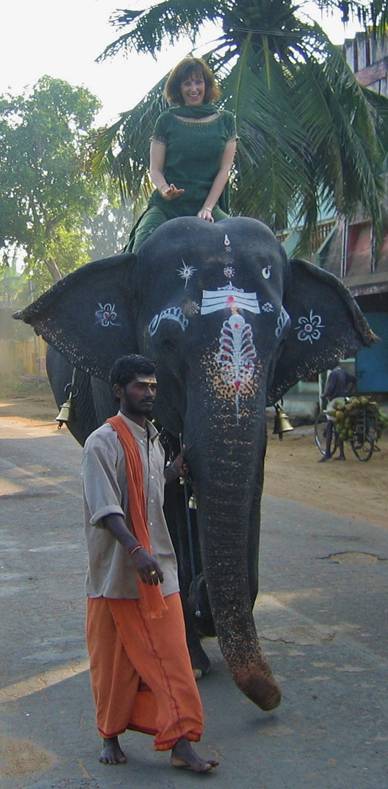

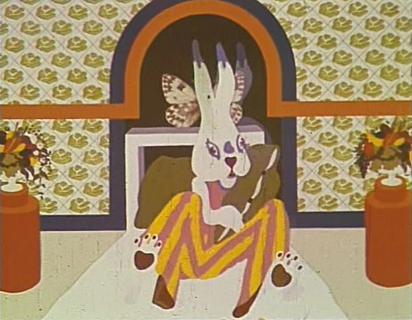









.jpg)



